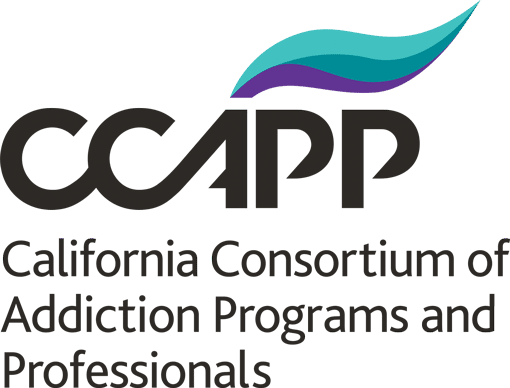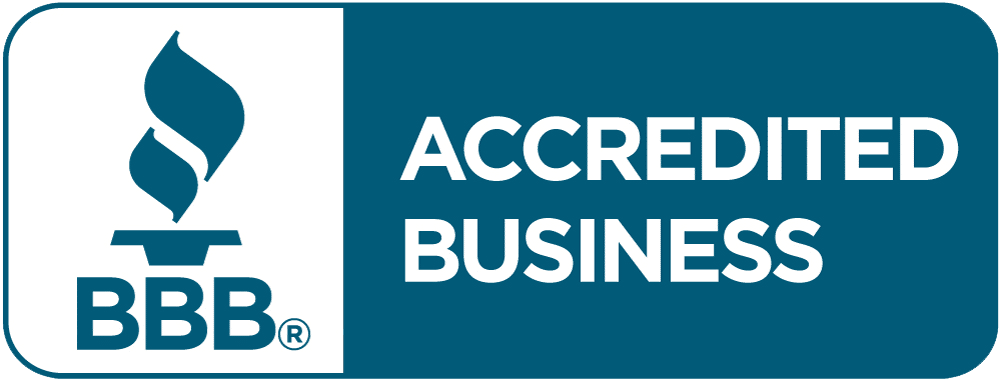
Do you ever feel like you’re trapped in a never-ending loop of failure and addiction? It’s a vicious cycle that countless individuals find themselves caught in. Keep reading to explore the intricate web of failure and addiction, understand the roots of this cycle, and learn effective strategies to break it.
Understanding the Cycle
Imagine life as a complex maze where every twist and turn presents new challenges. Now, picture this maze as the cycle of failure and addiction—a bewildering labyrinth in which countless individuals find themselves trapped.
But how does one end up in this maze in the first place?
1. The Catalyst: Setbacks and Disappointments
It often starts innocently enough, with a setback, a failure, or a moment of weakness. Life, being unpredictable, throws curveballs at us. Maybe it’s the loss of a job, a relationship falling apart, or a dream slipping through our fingers. These moments can be profoundly disheartening, leaving us vulnerable and emotionally raw.
2. The Escape: Coping Mechanisms and Unhealthy Behaviors
In the face of these setbacks, people seek solace or a way to numb the pain temporarily. This is where coping mechanisms come into play. Some turn to substances and others adopt different unhealthy behaviors as a means to cope. It could be alcohol, drugs, or even binge eating—anything that offers a momentary escape from the harsh realities of life.
3. The Illusion: Fleeting Relief and Deeper Despair
At first, these coping mechanisms seem like a lifeline and a temporary respite from the overwhelming emotions. The initial buzz or distraction provides a fleeting sense of relief, like a brief pause button on life’s challenges. However, this relief is short-lived and illusory. The underlying problems remain unresolved, festering beneath the surface.
4. The Downward Spiral: Deeper Failure and Self-Loathing
As the temporary escape fades, a harsh reality sets in. This realization deepens the sense of failure and self-loathing. Individuals berate themselves for succumbing to these destructive habits, creating a vicious cycle of negative self-talk and despair.
5. The Renewed Cycle: Addiction Takes Hold
In this pit of despair, it’s easy for addiction to take root. Whether it’s chemical dependency or behavioral addiction, the cycle tightens its grip. The addictive behavior provides a semblance of control, a way to cope with self-loathing and failure, although temporarily.
However, as addiction takes hold, the cycle restarts. More setbacks follow, leading to more desperate attempts to escape, perpetuating the pattern.
Unveiling the Victims
The cycle of failure and addiction doesn’t discriminate; it ensnares people from various backgrounds and circumstances. Here’s a closer look at those who find themselves trapped in this relentless cycle:
1. Vulnerable Youth
Highly susceptible to peer pressure and societal expectations, young individuals often fall prey to the cycle of failure and addiction. Academic stress, social insecurities, and the desire to fit in can lead them down a path of substance abuse. The early stages of experimentation can swiftly transform into a dangerous addiction, hindering their personal development and academic achievements.
2. Struggling Professionals
Surprising as it may seem, professionals and high achievers are not immune to the clutches of addiction. Stress, burnout, and the relentless pursuit of success can drive individuals in demanding careers toward substance abuse. For them, addiction becomes a way to cope, but it ultimately sabotages their work performance, jeopardizing their careers and personal lives.
3. Mentally Vulnerable Individuals
Those battling mental health issues, like anxiety, depression, or trauma, are particularly susceptible. Seeking refuge in addictive substances often appears as an escape from emotional pain. However, this coping mechanism only exacerbates their struggles, entangling them deeper in the cycle.
4. Individuals Facing Life Transitions
Major life transitions such as divorce, the loss of a loved one, or unemployment can trigger the cycle of failure and addiction. Coping with these significant changes becomes overwhelming, leading individuals to seek solace in substances. The temporary relief, unfortunately, transforms into a long-term struggle, trapping them in a cycle of despair.
By recognizing the patterns, individuals can begin to navigate their way out step by step.
The Psychological Factors Behind the Cycle of Addiction and Failure
Life can throw some pretty tough curveballs our way, and for some, these challenges can lead down a dark path of addiction and failure. Here are the psychological factors that contribute to this cycle.
1. The Impact of Low Self-Esteem
You know that little voice inside your head that sometimes tells you you’re not good enough? That’s low self-esteem talking, and it’s like a sneaky saboteur. When people don’t believe in themselves, they might turn to substances or addictive behaviors to find a glimmer of confidence. It’s like a quick fix for a deeper issue, but it only makes things worse in the long run.
Getting out of this rut means changing the way we see ourselves. Therapy can be a game-changer, teaching individuals to value themselves no matter what. Support from friends and family is like a safety net, helping us resist the pull of addiction.
2. Coping Mechanisms: the Good, the Bad, and the Addictive
Life can be pretty stressful. Without healthy ways to cope, some people turn to addiction as an escape. Whether it’s stress, anxiety, or pain, addictive substances offer a momentary break. But it’s just a band-aid solution; it doesn’t fix the real problem.
Professional help gives individuals access to the healthy coping mechanisms they need to deal with stress without resorting to addiction. Have you tried mindfulness? It’s like a mental gym session, building resilience against life’s challenges.
3. Trauma: the Ghosts of the Past
Traumatic experiences can haunt us, shaping our behavior and driving us toward addiction. It’s like carrying a heavy backpack of emotions that we can’t put down. While addictive substances offer a way to numb that pain temporarily, the wounds are still there, waiting to resurface.
Dealing with trauma is like facing a monster in the dark. Getting therapy helps us confront these demons, offering a safe space to heal. Have you ever considered faith-based intervention? It’s like finding a guiding light in the darkness, helping us reconcile our past and move forward.
4. Escaping Regret: Addiction as a Hiding Place
Regret can weigh us down like an anchor, making us want to escape our own past. Addiction can become a hiding place, a way to avoid facing the consequences of our actions. But here’s the truth—it doesn’t solve anything.
Taking responsibility for our past mistakes is like breaking free from chains. Support groups and professionals provide a platform for self-forgiveness, letting us move forward with a clean slate.
Breaking Free: Journey into the Light
Finding your way out of the cycle of failure and addiction might feel like navigating a puzzle in the dark. With the right support, therapy, and inner strength, breaking free is within reach.
Setbacks are like stumbling blocks on a path. Sure, they slow you down, but they don’t have to stop you. Think of them as temporary detours, not dead ends. You’ve got what it takes to overcome them. Your strength and resilience are your secret weapons.
Healthy coping mechanisms and a supportive network act as your guiding stars. It’s like having a map in this puzzle, helping you avoid the dead ends. And that determination you carry within you? It’s your flashlight showing you the way out.
Recovery is a process, a bit like finding your way in the dark until you see the first rays of sunlight. It requires patience, self-compassion, and a whole lot of courage. Every step forward and every setback you conquer is a victory, a sign that you’re closer to the exit and closer to stepping into the light of recovery and hope.
Remember, you’re not alone on this journey. Others have walked this path and emerged stronger. Believe in yourself, take one step at a time, and soon you’ll find yourself stepping into the light, leaving the maze behind.
The Role of Faith
In the midst of this struggle, faith can serve as a guiding light. Believing in something greater than oneself can instill hope, offering the strength needed to persevere. Faith teaches us that setbacks are not permanent; they are opportunities for growth and learning. In moments of despair, turning to meditation, prayer, and faith can provide comfort and a renewed sense of purpose. It’s a beacon in the darkness, illuminating the path toward recovery.
Catholicism’s Influence on Breaking the Cycle
Rooted Presence in Urban Areas
The Roman Catholic Church, as one of the largest Christian denominations in the United States, maintains a robust presence, particularly in urban areas where the struggles of addiction often intensify. The community’s size and influence contribute significantly to providing support for individuals trapped in the cycle of failure and addiction.
Sacrament of Confession: A Path to Redemption
Acknowledging Shortcomings in a Sacred Space
Central to Catholic practice is the sacrament of confession, offering individuals a sacred space to openly acknowledge their shortcomings. This spiritual ritual becomes a pivotal aspect of breaking the cycle, encouraging self-reflection, and providing guidance toward the path of recovery.
Community Support and Non-Judgmental Environment
Strength in Unity
The communal aspect of Catholicism plays a crucial role in supporting individuals on their journey to recovery. Parishioners come together to offer a non-judgmental environment, fostering understanding and providing a support system for those grappling with addiction. The sense of community helps break the isolation often associated with addiction.
Structured Framework for Breaking Chaotic Patterns
Rituals and Traditions as a Guide
Catholicism provides a structured framework for breaking the chaotic patterns linked to addiction. The rituals and traditions within the faith offer a systematic approach to recovery. Emphasizing prayer, reflection, and spiritual growth, these practices align with the journey toward sobriety, fostering resilience in the face of adversity.
Valuing Every Individual: Potential for Transformation
A Guiding Light Towards Recovery
At the heart of Catholic teachings is the belief in the inherent value of every individual and their potential for transformation. This perspective serves as a guiding light for those seeking to break free from the cycle of failure and addiction. In the embrace of the Catholic community, individuals find solace and a roadmap toward a life of purpose and sobriety, challenging the notion that addiction is an insurmountable pattern.
The Importance of Seeking Professional Help for Addiction
I. Expert Guidance and Assessment
Professional therapists and counselors possess the expertise to assess the depth of addiction, considering various factors such as its duration, severity, and underlying causes. Their assessments form the foundation for personalized treatment plans, ensuring tailored support for every individual.
II. Evidence-Based Treatment Options
Addiction professionals are well-versed in evidence-based therapies that have proven effectiveness. They implement scientifically validated treatments like cognitive-behavioral therapy (CBT), motivational enhancement therapy (MET), and dialectical behavior therapy (DBT). These therapies address the psychological aspects of addiction, promoting lasting recovery.
III. Medical Support and Detoxification
For substance-related addictions, medical professionals provide essential support during detoxification, managing withdrawal symptoms, and ensuring the safety of the individual. Medical interventions, when necessary, ease the transition into sobriety, making the process more manageable and less risky.
IV. Emotional Support and Coping Strategies
Addiction specialists offer emotional support, teaching healthy coping mechanisms and stress management techniques. They guide individuals in navigating triggers and cravings, empowering them to resist relapse effectively.
V. Building a Supportive Network
Professional addiction treatment programs often involve group therapy sessions, connecting individuals with others facing similar struggles. This supportive network fosters understanding, empathy, and encouragement, vital components of the recovery journey.
VI. Long-Term Relapse Prevention
Addiction professionals assist individuals in developing long-term relapse prevention strategies. Through therapy sessions, they identify potential triggers, teach coping skills, and provide ongoing support, significantly reducing the risk of relapse.
Seeking professional help not only initiates the recovery process but also ensures a comprehensive, holistic approach tailored to the individual’s specific needs. The guidance and expertise of addiction professionals pave the way for a healthier, addiction-free life.
How Can Christian’s Drug Rehab Help?
The power of faith, coupled with professional therapy and counseling, empowers individuals to break free from the chains of addiction and discover a renewed sense of purpose. With a supportive Christian community, tailored treatment plans, and a foundation of faith, individuals can embark on a transformative journey toward recovery, leaving behind the cycle of failure and addiction.
When caught in the daunting cycle of failure and addiction, finding faith-based support can be a beacon of hope. Christian’s Drug Rehab provides a unique and compassionate approach to recovery. We treat individuals for their addiction and also nurture them spiritually, emotionally, and mentally. Reach out to us to learn more about our services.












